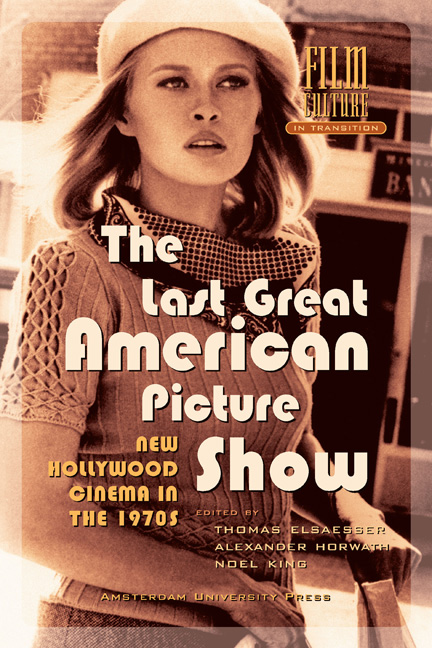Allegories of Post-Fordism in 1970s New Hollywood: Countercultural Combat Films and Conspiracy Thrillers as Genre Recycling
Published online by Cambridge University Press: 25 January 2021
Summary
This essay deals with some aspects of the New Hollywood cinema of the late 1960s and early 1970s, focusing on non-canonized works among the war movies and conspiracy thrillers of that period, and on some related diagnostic, critical and historiographic discourses. One concern is to ask how such accounts of New Hollywood, in the historically narrow sense of the term, can be related to our present media-cultural experience, and what meanings the films in question can be made to reveal in a retrospective, allegorizing approach – in short: how to remember New Hollywood circa 1970. The retrospective frameworks employed here are (fragments of) a genealogy of subjectivities and temporalities characteristic of post-Fordist social production (which is where issues of ‘flexibility’ and ‘recycling’ and arguments made by Michael Hardt and Antonio Negri will come in), and the pre-history of today's blockbuster-oriented American cinema – the one which we know as New Hollywood in a larger sense.
Hollywood's Crisis and the Countercultural Pressure: Redefining Purposeful Action
In 1971, monogram film magazine published a dossier on contemporary Hollywood in which the latter's overproduction crisis was interpreted as a crisis of its cultural, ethical and aesthetic presuppositions – of the conceptions of narrative orientation and meaningful action underlying its products. Peter Lloyd saw Hollywood as being in “crisis and transition” and as blindly grasping at trends in the youth market, largely due to “the gradual collapse of the efficacy of the heroic individual in the American cinema”. And Thomas Elsaesser pointed to massive differences between classical Hollywood's “central protag onist with a cause, a goal, a purpose – in short, a motivation for action” and the “unmotivated hero” in recent films like EASY RIDER (1969). The “crisis of motivation” became a key term in Elsaesser's 1975 diagnosis of the “pathos of failure” in American cinema during its contemporary transition from an “affirmative- consequential” conception of narrative action to an as yet undetermined mode. Referring mainly to New Hollywood's youth and road movies like EASY RIDER and TWO-LANE BLACKTOP (1971), Elsaesser wrote: “What the heroes bring to such films is the almost physical sense of inconsequential action, of pointlessness and uselessness, a radical scepticism, in short, about the American virtues of ambition, vision, drive.”
- Type
- Chapter
- Information
- The Last Great American Picture ShowNew Hollywood Cinema in the 1970s, pp. 333 - 358Publisher: Amsterdam University PressPrint publication year: 2004



